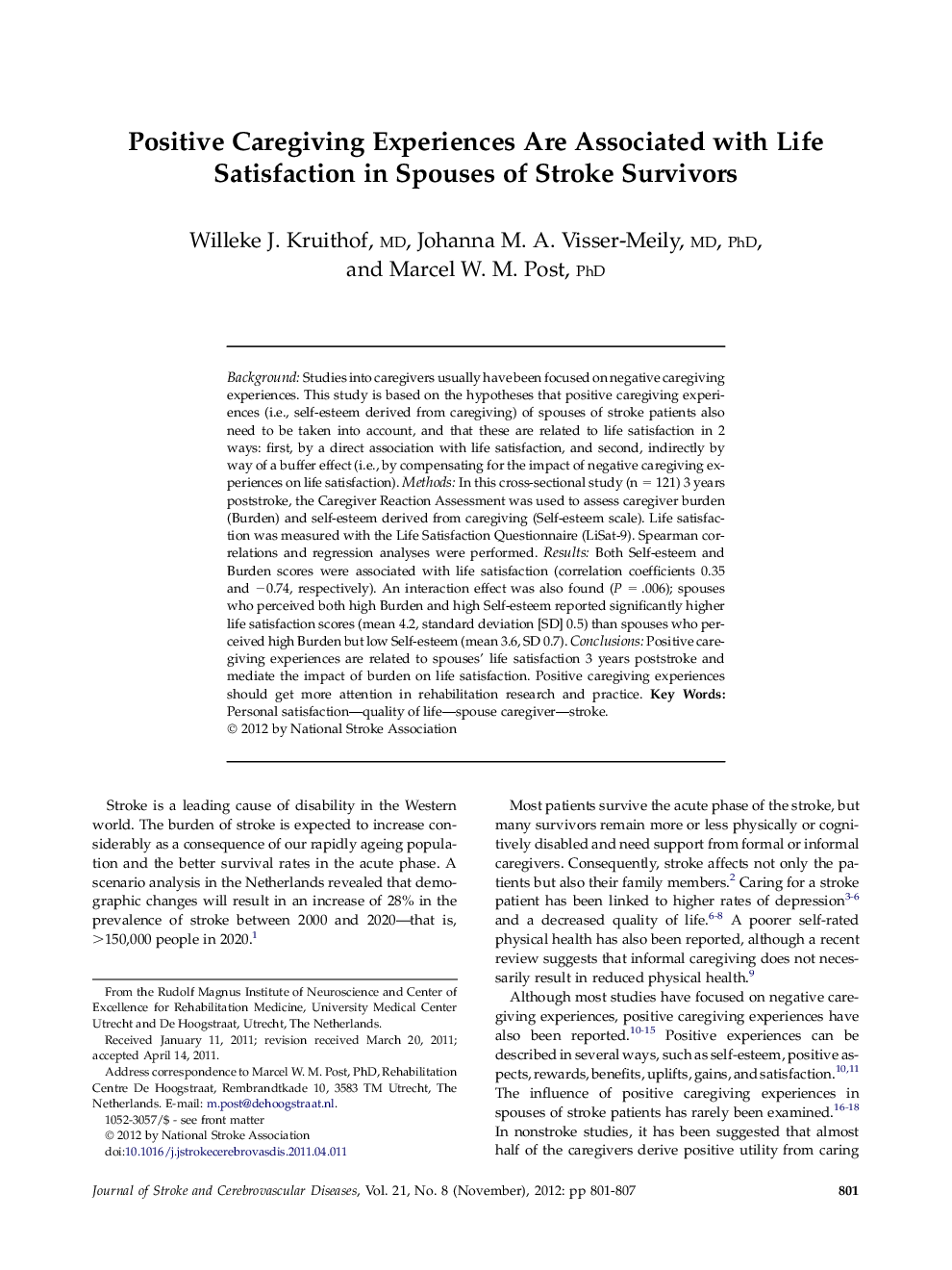| Article ID | Journal | Published Year | Pages | File Type |
|---|---|---|---|---|
| 2711043 | Journal of Stroke and Cerebrovascular Diseases | 2012 | 7 Pages |
BackgroundStudies into caregivers usually have been focused on negative caregiving experiences. This study is based on the hypotheses that positive caregiving experiences (i.e., self-esteem derived from caregiving) of spouses of stroke patients also need to be taken into account, and that these are related to life satisfaction in 2 ways: first, by a direct association with life satisfaction, and second, indirectly by way of a buffer effect (i.e., by compensating for the impact of negative caregiving experiences on life satisfaction).MethodsIn this cross-sectional study (n = 121) 3 years poststroke, the Caregiver Reaction Assessment was used to assess caregiver burden (Burden) and self-esteem derived from caregiving (Self-esteem scale). Life satisfaction was measured with the Life Satisfaction Questionnaire (LiSat-9). Spearman correlations and regression analyses were performed.ResultsBoth Self-esteem and Burden scores were associated with life satisfaction (correlation coefficients 0.35 and −0.74, respectively). An interaction effect was also found (P = .006); spouses who perceived both high Burden and high Self-esteem reported significantly higher life satisfaction scores (mean 4.2, standard deviation [SD] 0.5) than spouses who perceived high Burden but low Self-esteem (mean 3.6, SD 0.7).ConclusionsPositive caregiving experiences are related to spouses’ life satisfaction 3 years poststroke and mediate the impact of burden on life satisfaction. Positive caregiving experiences should get more attention in rehabilitation research and practice.
